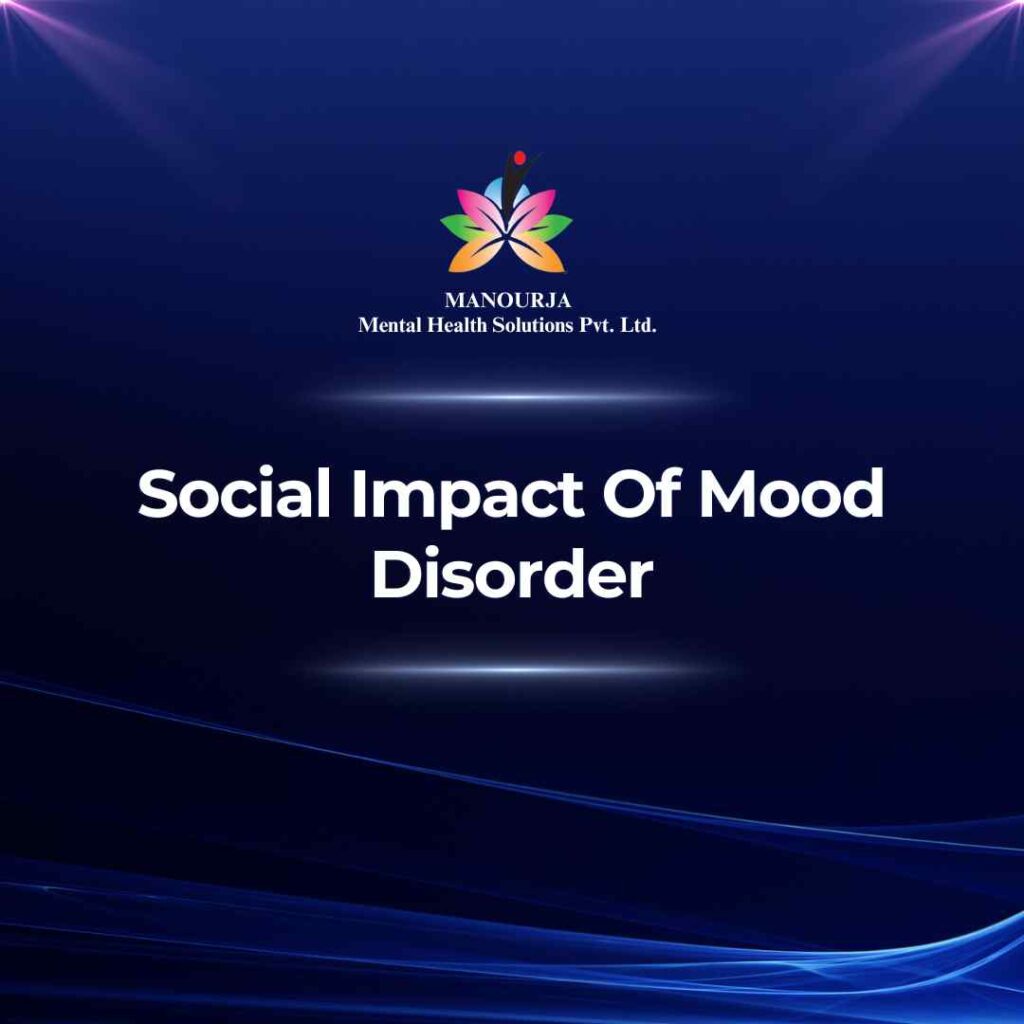Social Impact of Mood Disorder

Mood disorders, such as depression and bipolar disorder, significantly affect not only the individuals experiencing them but also their social interactions and roles within the community. The social impact of these disorders can be profound, affecting relationships, work, and overall societal participation.
Here are some of the key social impacts associated with mood disorders:
Relationship Difficulties
Individuals with mood disorders often face challenges in maintaining healthy interpersonal relationships. They may struggle with communication, feel misunderstood, or become overly dependent on others, leading to strained relationships with family, friends, and partners. During depressive episodes, they might withdraw socially; during manic phases (in the case of bipolar disorder), they may exhibit behaviors that can be difficult for others to manage or understand.
Social Withdrawal
A common response to mood disorders is social withdrawal. Individuals may isolate themselves due to feelings of worthlessness, excessive fatigue, or because they feel they may become a burden to others. This withdrawal can lead to loneliness and further exacerbate their symptoms.
Workplace Challenges
Mood disorders can significantly impair an individual’s ability to function effectively at work. Symptoms like lack of concentration, fatigue, and cognitive impairments can decrease productivity and increase absenteeism, which might lead to job loss or decreased job performance. Employers and coworkers may not always understand the source of the problem, leading to misunderstandings or misjudgments about the affected individual’s capabilities.
Stigma and Discrimination
Stigma surrounding mental health issues can be a powerful social impact of mood disorders. Individuals may be subjected to stigma from misconceptions that they are lazy, weak, or lacking in discipline. This stigma can prevent individuals from seeking help and receiving the necessary support from their community and healthcare systems.
Educational Impacts
Young individuals suffering from mood disorders may experience difficulties in academic environments. Problems with memory, concentration, and motivation can impair learning and academic performance, potentially leading to higher dropout rates or repeated grades.
Economic Consequences
Mood disorders can also lead to significant economic impacts due to lost productivity, medical costs, and potential unemployment. The economic burden can strain personal finances, leading to further stress and exacerbating the individual’s mood disorder.
Reduced Quality of Life
Overall, the social implications of mood disorders can lead to a reduced quality of life. Individuals may find themselves unable to participate in activities they once enjoyed or feel cut off from social networks that provide support and meaning.
Parenting Challenges
Parents with mood disorders might struggle with consistency in parenting styles, emotional availability, and the overall energy required to meet their children’s needs. This can affect the emotional and psychological development of their children.
Addressing the social impacts of mood disorders is crucial for recovery and management. Treatment approaches often include psychotherapy, medication, social skills training, and community support programs, which help improve social functioning and reduce the isolation that can occur with these conditions.
At MANOURJA, we believe in the transformative power of counseling. Our experienced therapists offer a safe and supportive space where you can explore your thoughts, emotions, and challenges. Through personalized counselling sessions, we’ll work together to develop coping strategies, build resilience, and achieve lasting positive change. Discover the path to a healthier, happier you with MANOURJA counselling services.
MANOURJA Rehabilitation Services
At MANOURJA, we’re dedicated to helping you in rebuild your life, after difficult times. Our rehabilitation services focus on understanding what you need to move forward, whether you’re recovering from addiction, trauma, or any psychological – social challenges. We create personalized plans, that are all about helping you, regain your strength and find hope again. With a caring team by your side, you’ll have the support to make real progress and take steps toward a brighter, healthier future.
